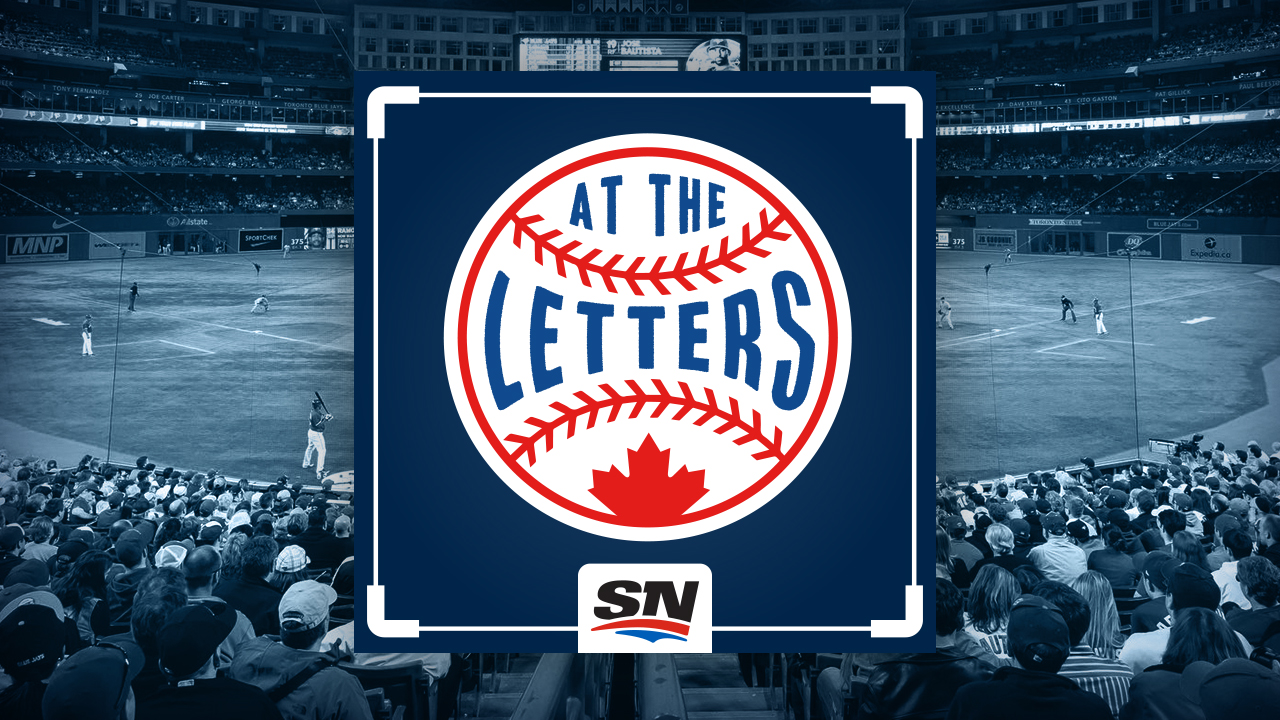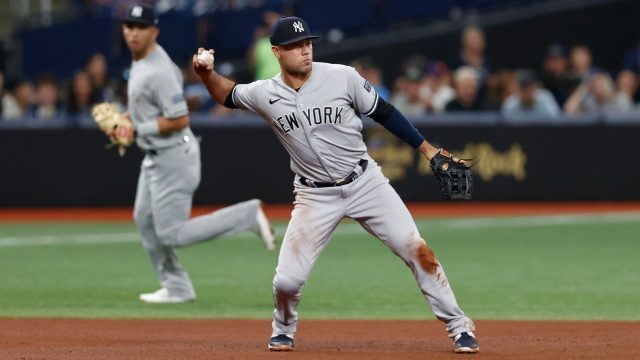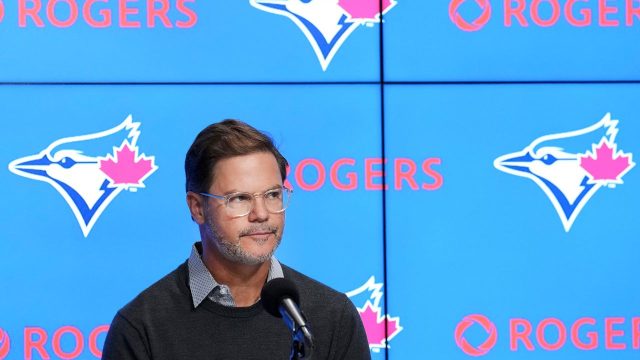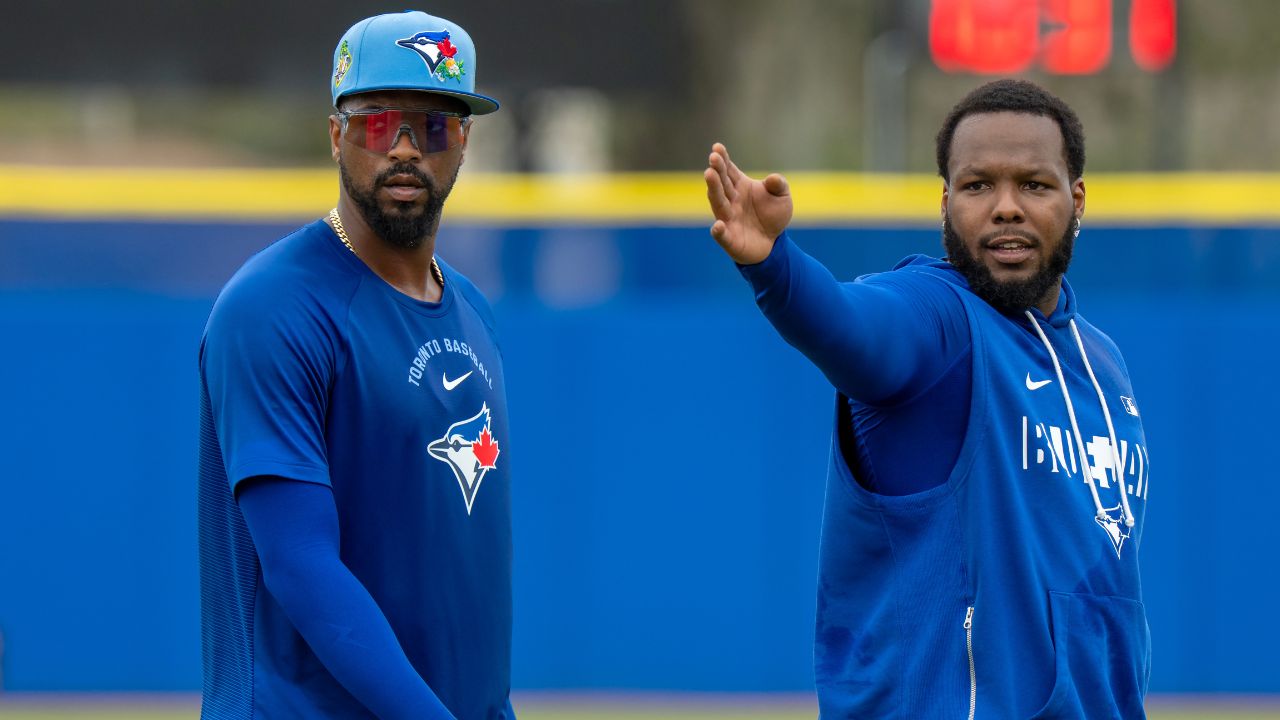
TORONTO – As 2024 begins, the Blue Jays’ immediate path ahead seems clear enough.
The details will be important here — they always are — but zooming out a little, we can say this much: The focus now will be on offence, and the likelihood of a major splash has dropped off considerably.
And really, once Shohei Ohtani turned down the Blue Jays for the Dodgers, a letdown was inevitable. The word Ross Atkins used last week to describe that feeling was “disappointed,” and that disappointment will likely linger until this team performs better on the field — tough to do when you’ve lost Hyun Jin Ryu, Jordan Hicks, Brandon Belt and Matt Chapman without replacing them. Not impossible, but legitimately hard.
Now, as last year’s Mets and Padres can attest, winning the off-season doesn’t always lead to in-season success and there’s no reason the 2024 Blue Jays can’t contend, but really contention is the bare minimum for a team spending past MLB’s competitive balance tax and seeking its first playoff win since 2016. There’s an opportunity to do more here, and the additions of Kevin Kiermaier and Isiah Kiner-Falefa should be the start of something, not a full off-season plan.
When Atkins says he likes this team as-is, it’s not exactly going to calm a justifiably edgy fan base, but there’s no reason to believe the Blue Jays are done here. There will be at least one addition, and meaningful free-agent talks were ongoing over the weekend, as you’d expect.
At the same time, the Blue Jays don’t improve their bargaining position by telling everyone they’re desperate, especially when they’re not. The outfield/DH market’s where they’re “most likely” doing their shopping, Atkins said, and that area of free agency’s filled with quality players including Joc Pederson, Rhys Hoskins, J.D. Martinez, Justin Turner, Jorge Soler and Joey Votto.
It’s truly hard to imagine that this entire market would slip away from the Blue Jays and leave them without any viable bats. They can pay market prices and offer playing time. It’s an appealing combination. Depending on who they land, they could consider a second addition, though Atkins said he doesn’t expect to add three bats.
Still, two hitters make sense. Say they add Pederson, for instance, and he becomes their cleanup hitter against righties. Adding Justin Turner could still make sense as a right-handed complement. One way or another, a team with Kiermaier, Pederson and Daulton Varsho would need a late-game bench bat who hits right-handed, so a pursuit of someone like Adam Duvall or Amed Rosario could make sense, too.
At the same time, free agents might want assurances of more playing time, so the Blue Jays may want to explore trades for this type of right-handed bench bat, just as the Dodgers did in acquiring Manuel Margot from the Rays. That’s the kind of player who would make sense for the Blue Jays in a complementary role, starting against lefties or pinch hitting late for someone like Varsho or Pederson.
Now, the Blue Jays may be equally likely to sign one everyday player — J.D. Martinez, for instance — and call it a winter, but either way, that’s not much comfort for Blue Jays fans, especially while some bigger picture questions linger around this team.
High on the list of those questions: What about extensions for Vladimir Guerrero Jr. and Bo Bichette, who hit free agency next year? Sounds weird, right? But it’s technically true. They’re free agents following the 2025 season.
And while anything could happen when it comes to extensions, aligning on value will be especially hard in the case of Guerrero Jr., who had a down year by his standards in 2023. Is he an MVP player, or someone whose extraordinary tools lead to more ordinary production (1.0 fWAR, 2.0 bWAR in 2023)?
Answering that question is impossible right now, so it seems far more likely that all involved will let this play out for at least one more year, when finding common ground on numbers might be easier. As for Bichette, aligning on value might be simpler, especially after agreeing to a deal covering his arbitration years last winter, but his next deal will be on a different scale, and those contracts typically create some discomfort for all involved.
Or maybe extension talks never gain traction. Stranger things have happened, and that wouldn’t necessarily mean that the Blue Jays have to consider trades for Guerrero Jr. and Bichette.
While the temptation to “get something” for a departing player is understandable, don’t overlook what these players can offer in the meantime. Guerrero Jr.’s age-26 season and Bichette’s age-27 season are incredibly valuable – prime years from elite players – and you could always sign them as free agents after 2025. Playing this thing out with compensatory draft picks as a last resort isn’t necessarily a bad outcome.
That’s still two seasons away, though. More immediately, manager John Schneider will face pressure to deliver results right away, and there will be a heightened focus on the club’s restructured hitting department, with Don Mattingly and Matt Hague in, Dave Hudgens out and Guillermo Martinez back for more. At the same time, we’ve seen by now that this Blue Jays office isn’t especially reactive.
If the Blue Jays start the year 13-17, for example, fan disappointment would reach new depths. But it’d be a surprise to see the Blue Jays react rashly and fire Schneider even if fan frustration builds. In fact, some experienced executives around the sport believe Schneider earned himself even more job security by owning the decision to replace Jose Berrios with Yusei Kikuchi in the 2023 playoffs.
As ever in baseball, everything becomes simpler if the Blue Jays win. And winning becomes more realistic if Atkins can finish off an anticlimactic off-season with moves that prove to be impactful over time. Until then, some frustration will linger along with more than a few questions.







